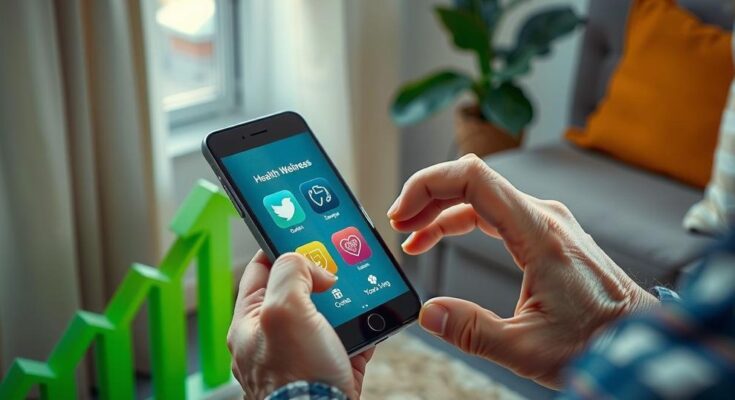A recent AARP survey indicates that while a majority of adults aged 50 and over are familiar with technology and eager to use health apps, many are not fully tapping into their benefits, especially for chronic health management. Although 71% own smartphones, only 20% use apps for health-related issues, revealing opportunities for increased engagement and education to enhance their well-being.
The AARP survey reveals that while many adults aged 50 and over are comfortable with technology, they are not fully utilizing health and wellness apps to enhance their well-being. A significant 71% own smartphones or tablets, and 80% regularly download apps, yet few engage with available technology for managing chronic health conditions. When it comes to the purpose of these apps, 55% of respondents use them to track fitness, while 29% employ them for health monitoring and personal goal-setting. However, only 13% find them useful for managing health records, and an even smaller number utilize features for medication reminders or social support. The potential of technology is recognized, but many don’t take full advantage. Despite 63% of participants living with chronic conditions, only 20% use apps to manage their health issues. The vast array of over 350,000 available health and wellness apps can be daunting. Older adults often rely on recommendations from friends (43%) and online reviews, with about 60% reading reviews before downloading, favoring expert opinions over personal testimonials. Cost and lack of expert guidance are significant obstacles for older adults in adopting these technologies. Free apps attract users, but concerns about security and choosing the right device linger. Opinions on AI in health apps are mixed, reflecting both enthusiasm and apprehension regarding privacy and costs. The findings underscore the necessity for education and trusted recommendations for older adults navigating health app technology. Enhanced access to expert advice could encourage more seniors to download and effectively use these digital tools for better health management as they age.
As technology increasingly intertwines with daily life, understanding how older adults engage with health and wellness apps becomes crucial. The AARP survey provides insights into the intersection of technology and health for this demographic, revealing both interest and barriers to using available tools. With chronic health conditions prevalent in this age group, the capacity of apps to aid in better management can enhance quality of life. Yet, challenges such as information overload, cost, and lack of guidance hinder their adoption, pointing to a need for better resources.
The AARP survey highlights a significant gap between older adults’ awareness of health and wellness apps and their actual usage, especially for chronic condition management. While many find value in these technologies, hurdles like cost, privacy concerns, and the challenge of selecting suitable applications remain. A focus on providing clear information and expert recommendations could empower seniors to embrace these tools, ultimately leading to improved health outcomes as they navigate aging. In a world of abundant resources, the right guidance may turn potential into practical use, fostering a healthier, tech-savvy generation of older adults.
Original Source: www.aarp.org



